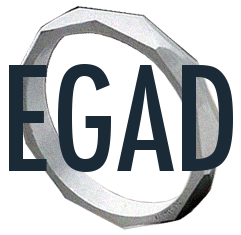Continuous Program Improvement Resources
Welcome
The EGAD Project group has adopted an approach to supporting outcomes-based curriculum development based on the following 4 tenets of effective practice. Through them our intention is to engage engineering educators, students and the engineering community in ensuring that engineering programs graduate students who are ready to meet the needs of an increasingly changing and complex society, while at the same time supporting the tenets of academic freedom and respecting the learning culture and resource parameters of individual institutions. 1. Outcomes-based curriculum development is a process of the continuous improvement of sustainable practices 2. Outcomes achievement is a responsibility shared by faculty and students. 3. There is a culture of autonomy and academic freedom within courses and curriculum in higher education 4. A scholarly approach to curriculum development includes processes that are faculty-driven, data-informed and literature-supported. The process is further supported by a scholarly approach to analysis, application, teaching and assessment. We invite you to explore the resources and training modules that our working group has developed, and provide us with your feedback.
–Brian Frank (project coordinator), Director (Program Development), Queen’s University
Key Principles
![]()
|
Continuous program improvement is based on key principles: Outcomes-Based Data-Informed Continuous Curriculum Improvement Continuous Improvement and Sustainability |
A 5 Step Guide To Curriculum Development
![]()
Workshops
![]() Slides for recent EGAD workshops on Graduate Attributes Assessment are available below and in the workshops section:
Slides for recent EGAD workshops on Graduate Attributes Assessment are available below and in the workshops section:
A two page summary of the presentation content is posted in PDF format. Click on continue to book a workshop. |
|
Additional Resources
![]()
| Additional resources available from CEAB Project partners and other authoritative sources. Topic are organized into the categories, and are accessible in additional resources page. |
|
